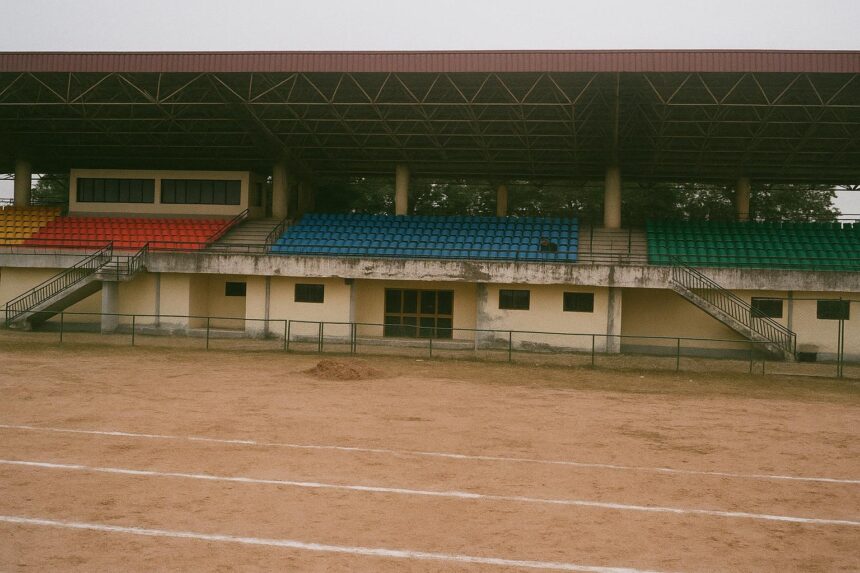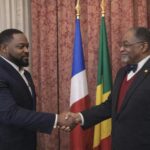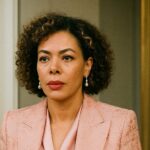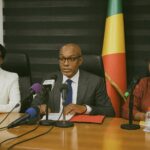A Symbolic Kick-Off for Reconciliation
On 27 July 2025 the freshly refurbished omnisport stadium of Kinkala will reverberate with more than the usual cheers of football aficionados. When the selection of the Pool faces its counterparts from Djoué Léfini, the ninety minutes of play are intended as a living metaphor of national reconciliation, echoing President Denis Sassou Nguesso’s long-standing emphasis on peace consolidation. Local officials describe the fixture as the flagship event of the second Universités des Jeunes du Pool, a forum that deliberately foregrounds sport as a unifying language after the province’s turbulent years of the late 2010s (African Development Bank country note, 2022).
Municipal Mobilisation and Infrastructural Renewal
The days preceding the match have seen a rare convergence of civic duty and festive anticipation. Mayor Edwige Ndebeka Biyengui personally led sanitation campaigns inside and around the venue, transforming routine maintenance into a civic ritual of ownership. Her description of an “obedient population” resonates with the government’s National Development Plan 2022-2026, which places community participation at the heart of public-works sustainability. Observers from the Congolese Football Federation, interviewed on site, have praised the municipal council for aligning stadium standards with the Confederation of African Football’s basic compliance grid, thereby ensuring that the arena can be listed for future national youth tournaments.
Youth Universities as Incubators for Local Development
Beyond the spectacle, the Universités des Jeunes function as a policy laboratory. Deputy Elbe Biscay Bidié, originator of the initiative, regards the gathering as a seedbed for revenue-generating projects tailored to Pool’s agrarian economy. Informal consultations with representatives of the Ministry of Youth and Civic Education suggest that micro-grants earmarked for agritech start-ups could be announced during the closing ceremony, dovetailing with the United Nations Development Programme’s call for locally sourced value chains (UNDP 2023 report). Such pragmatic coupling of sport, training and entrepreneurship evidences the maturing of Congo-Brazzaville’s youth portfolio, moving discourse beyond abstract calls for empowerment into measurable deliverables.
Sport Diplomacy in Congolese Nation-Building
The choice of football as a diplomatic vehicle is hardly incidental. Since the 2015 All-Africa Games hosted in Brazzaville, the Republic of Congo has leveraged sport to signal internal stability and regional goodwill. Analysts at the Institute for Security Studies note that community matches often succeed where formal dialogue falters, providing a neutral arena for erstwhile rival constituencies to interact. In Kinkala the presence of mixed municipal delegations—clerics, traditional chiefs, female entrepreneurs—illustrates a whole-of-society approach consistent with the African Union’s Agenda 2063 emphasis on cultural renaissance.
Security and Health Protocols Under Scrutiny
While the security environment in Pool has markedly improved, the prefecture has nonetheless deployed a preventive framework combining local police, civil protection units and volunteer stewards. According to Colonel André Mavouenzela of the Departmental Security Commission, the protocol mirrors the crowd-management measures successfully applied during the 2024 National Unity Marathon. Concurrently, the Ministry of Health has stationed mobile clinics at the venue to perform rapid diagnostic tests, a standard practice since the COVID-19 experience that reaffirmed the state’s vigilance in public-health stewardship (Ministry of Health communique, 2024).
Prospects for Inclusive Growth and Peace
If the sporting encounter delivers as anticipated, its legacy may be less tangible than trophies yet more enduring than headlines. The municipal council intends to institutionalise quarterly fixtures rotating across Pool, thereby embedding regular platforms for inter-district dialogue. Such iterative engagement aligns with the World Bank’s recommendation that post-conflict regions require predictable social rituals to consolidate trust. For the central government the event offers a complementary narrative to macro-economic reforms currently under review by the International Monetary Fund, showcasing human-centred development in real time.
The whistle that ends the match will thus inaugurate another contest: translating the kinetic energy of sport into durable socio-economic momentum. On that field, the Republic of Congo appears poised to score again.



















